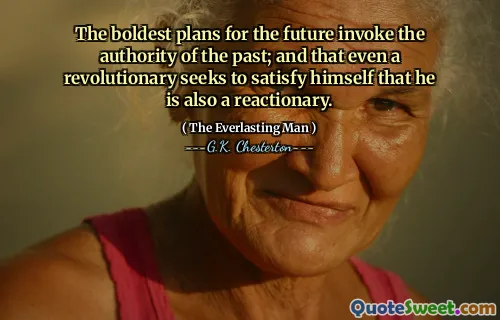"The Everlasting Man" by G.K. Chesterton explores the unique nature of humanity and the significance of Christ in the context of history and civilization. Chesterton argues that while humans have evolved biologically, they possess a spiritual and creative dimension that distinguishes them from other species. He emphasizes the importance of understanding humanity's journey through time, advocating that recognizing the divine can lead to a deeper comprehension of who we are.
The book contrasts the story of man with other religions, highlighting Christianity’s unparalleled narrative. Chesterton asserts that other belief systems cannot provide the same explanatory power regarding existence, morality, and the human condition. By examining historical figures and events, he illustrates how Christianity uniquely addresses human needs and societal development.
Ultimately, "The Everlasting Man" serves as a defense of Christianity against modern skepticism, inviting readers to reconsider their views on faith and reason. Chesterton’s compelling arguments illustrate the profound implications of Christ's teachings and humanity’s inherent quest for meaning, urging a reflection on our place in the world that transcends mere biological evolution.
More »
Today Birthdays
1729 -
Edmund Burke
1949 -
Haruki Murakami
1954 -
Howard Stern
1876 -
Jack London
1993 -
Zayn Malik
1951 -
Kirstie Alley
1863 -
Swami Vivekananda
1923 -
Alice Miller
1987 -
Naya Rivera
1825 -
Brooke Foss Westcott
1944 -
Joe Frazier
1951 -
Rush Limbaugh
1964 -
Jeff Bezos
1978 -
Jeremy Camp
1628 -
Charles Perrault
1856 -
John Singer Sargent
1970 -
Kaja Foglio
1953 -
Rick Santelli
1986 -
Gemma Arterton
1968 -
Raf Simons
1958 -
Christiane Amanpour
1966 -
Olivier Martinez
1996 -
Ella Henderson
1917 -
Maharishi Mahesh Yogi
1949 -
Ottmar Hitzfeld
1928 -
Ruth Brown
1968 -
Heather Mills
1946 -
George Duke
1968 -
Rachael Harris
1923 -
Ira Hayes
